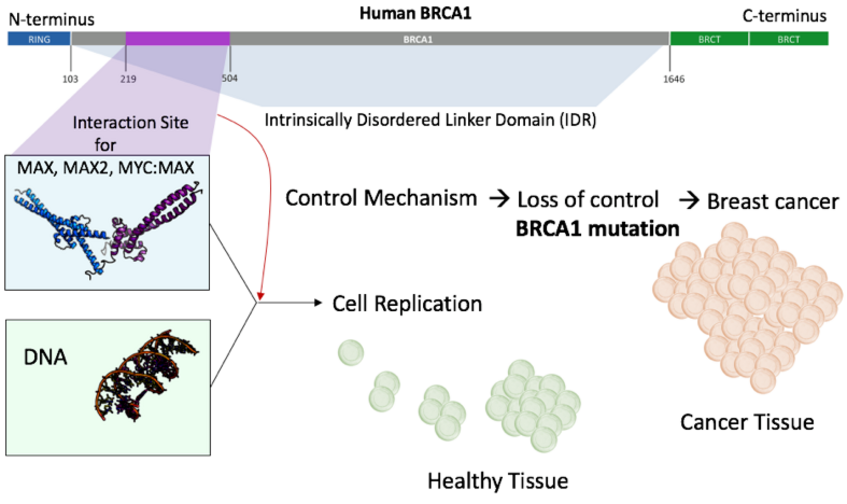ERC funded project "HYPROTIN"
Hyperpolarized Nuclear Magnetic Resonance Spectroscopy for Time-Resolved Monitoring of Interactions of Intrinsically Disordered Breast-Cancer Proteins

HYPROTIN proposes an innovative research platform for hyperpolarized magnetic resonance of breast-cancer related proteins that will help to improve our view on tumorigenesis at the atomic level, through bottom-up reconstitution of medicinal relevant interaction pathways involving the breast cancer susceptibility protein 1 (BRCA1).
The risk to develop a hereditary breast or ovarian cancer (HBOC) increases to 55-65 % upon mutation of the BRCA1 gene. Yet, little is known about the biochemistry of tumorigenesis, so that drugs directed towards molecular targets are not satisfactory. To date, mastectomy remains the only preventive treatment. This dramatic lack of knowledge is a consequence of BRCA1 being an intrinsically disordered protein (IDP). Recognizing the importance of IDPs has revolutionized structural biology in the last decade, but this also represents a huge experimental challenge. To date, nuclear magnetic resonance (NMR) is the only technique available to study IDPs at high resolution. However, several limits of the technique must be overcome. Its low sensitivity impedes investigations under biologically meaningful conditions, so that new approaches are required.
The HYPROTIN project aims to achieve two methodological goals: 1) Residue-resolved studies of the BRCA1 IDP under physiological conditions; and 2) real-time monitoring of BRCA1-ligand binding, thereby adding a time-resolved dimension to the NMR characterization of IDPs. This systematic approach will provide unprecedented insight into the BRCA1 interactome, provide medically relevant data and residue-resolved protein interaction kinetics.
